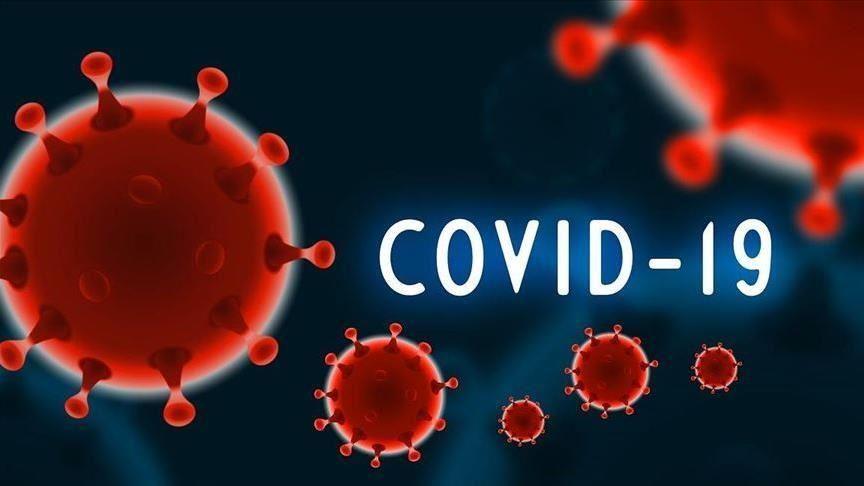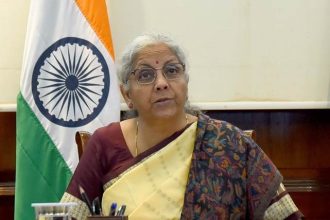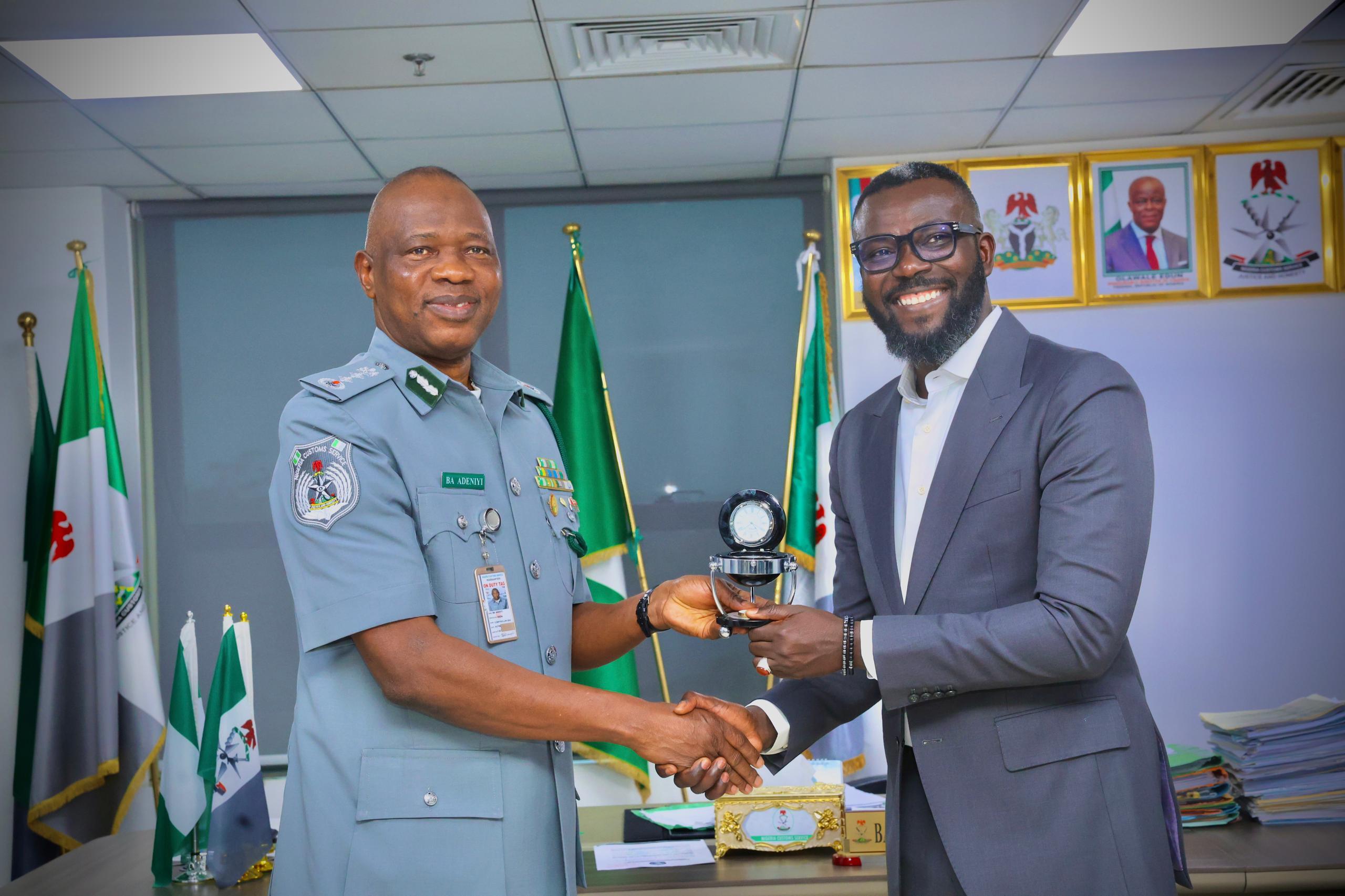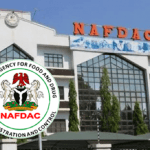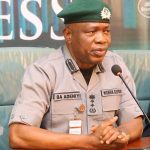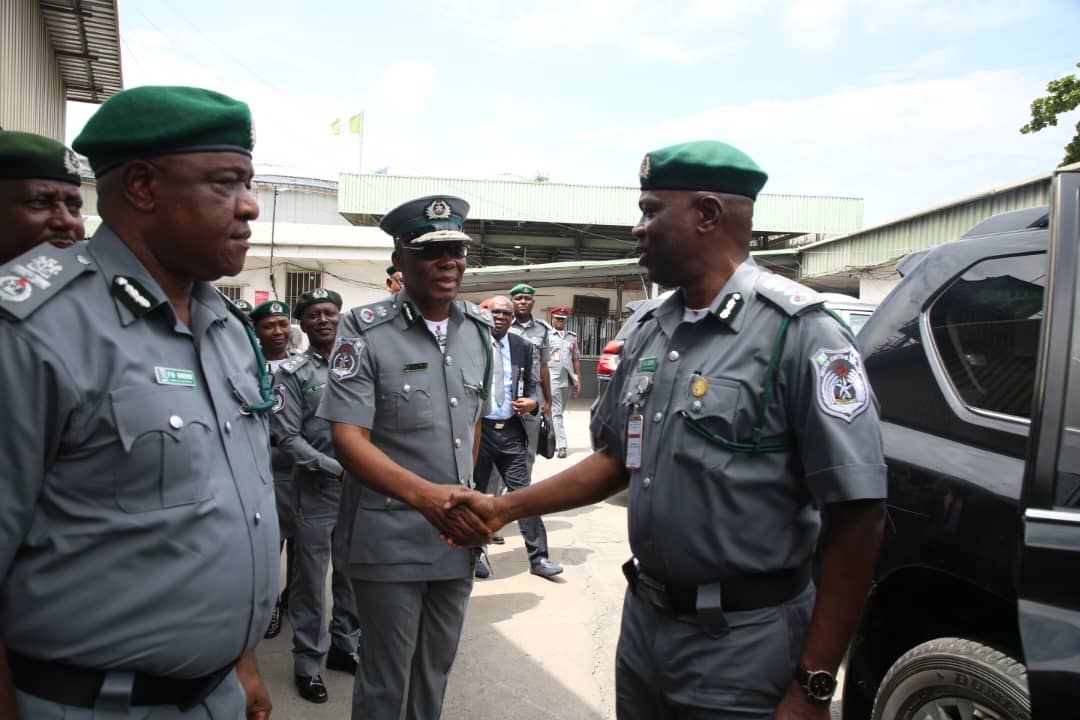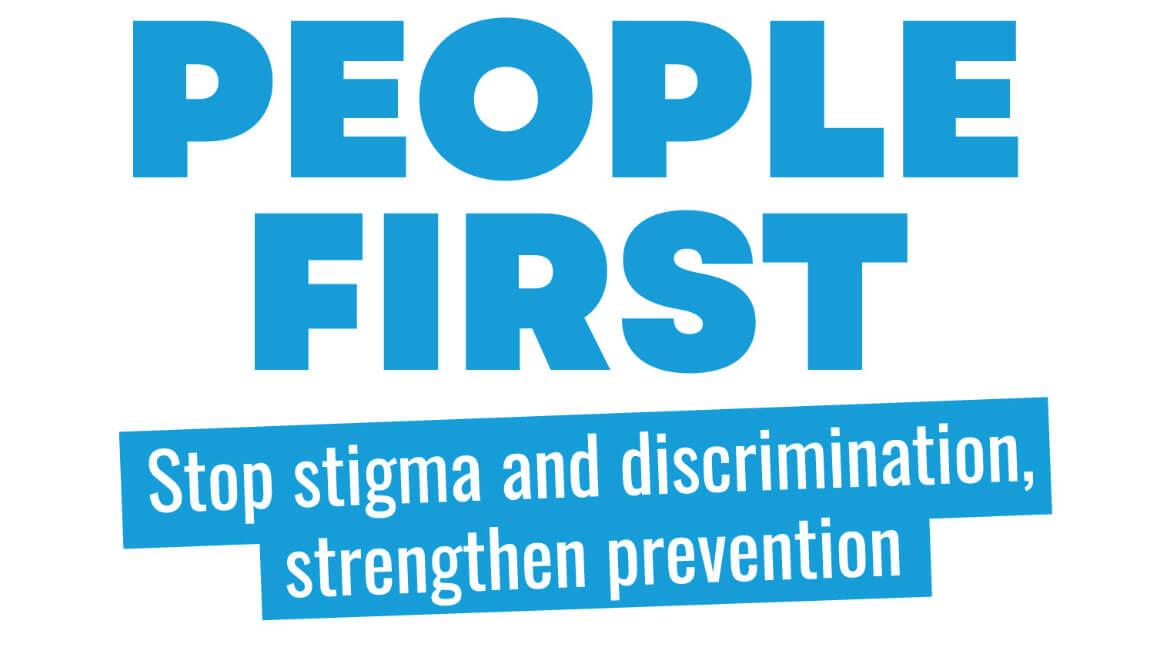According to Worldometer, on a global scale, the coronavirus had infected 85,721 people as of 29 February 2020, with 2,933 deaths recorded. The daily report on Worldometer has it that 39,797 have recovered from the virus. Nigeria as of 28 February 2020 has a Total and Active Cases of 1 (the Italian who flew with Turkish Airlines to Nigeria on February 25, 2020).
- What Is Coronavirus?
- What Is COVID-19?
- What Are The Symptoms Of COVID-19?
- How Long Does It Take Before The Symptoms Begins To Show?
- I Tested Positive Can I Do Self-Medication At Home?
- What Are My Chances Of Recovery?
- How Can I Protect Myself And Prevent Spread Of COVID-19 In Nigeria?
- How Likely Am I To catch COVID-19?
- Can Coronavirus Be Treated or Cured?
- WHO, FMH and NCDC Important Web Links To Note
Keeping this number contained is not only the responsibility of government. We as citizens and individuals also have our parts to play. The Portway in its patriotism as an online knowledge-base Nigerian platform has come up with help article to educate Nigerians on what coronavirus is, the symptoms they should be looking out for and what to do if they experience or notice any of the symptoms caused by the virus.
In this article, you will learn about the coronavirus disease, the symptoms and what to do if notice any of the symptoms on you or people around you.
What Is Coronavirus?
Coronaviruses are a large family of viruses which may cause illness in animals or humans. In humans, several coronaviruses are known to cause respiratory infections ranging from the common cold to more severe diseases such as Middle East Respiratory Syndrome (MERS) and Severe Acute Respiratory Syndrome (SARS).
What Is COVID-19?
COVID-19 is the infectious disease caused by the most recently discovered coronavirus. Breaking it down, the virus has been named “SARS-CoV-2” and the disease it causes has been named “coronavirus disease 2019” (abbreviated “COVID-19”). This new virus and disease were unknown before the outbreak began in Wuhan, China, in December 2019.
What Are The Symptoms Of COVID-19?
Knowing the symptoms associated with COVID-19 is key to knowing how to spot or go about the handling of the disease. Here are key signs to note:
The most common symptoms of COVID-19 are fever, tiredness, and dry cough. Some patients may have aches and pains, nasal congestion, runny nose, sore throat or diarrhea. These symptoms are usually mild and begin gradually.
The virus can cause pneumonia. Reports has it that those who have fallen ill before are most likely to suffer coughs, fever and breathing difficulties. In severe cases there can be organ failure.
Around 1 out of every 6 people who gets COVID-19 becomes seriously ill and develops difficulty breathing.
How Long Does It Take Before The Symptoms Begins To Show?
According to the World Health Organization (WHO), the “incubation period” means the time between catching the virus and beginning to have symptoms of the disease. Most estimates of the incubation period for COVID-19 range from 1-14 days, most commonly around five (5) days.
Chinese scientists on the other hand say some people may be infectious even before their symptoms appear. In other words, some people become infected but don’t develop any symptoms and don’t feel unwell.
I Tested Positive Can I Do Self-Medication At Home?
Self medication is highly not advised. It’s important to note that the pneumonia caused by COVID-19 is viral pneumonia and so antibiotics are of no use. The antiviral drugs we have against flu will also not work. About 2% of people with the disease have died.
Here are most recommended steps to take:
If you feel unwell with symptoms like fever, cough and difficulty in breathing, stay indoors and avoid contact with other people
Call for medical attention immediately. Don’t do this by running from one hospital to another, the best way to go about it is to contact the Nigeria Centre for Disease Control (NCDC) so you can be taken care of by medical practitioners who have been properly trained by WHO for such cases.
The Federal Ministry of Health has already made public an NCDC Toll FREE NUMBER to call – 0800-970000-10. This number is available day and night, for guidance on how to get help. Again, Do not engage in self-medication.
What Are My Chances Of Recovery?
Recovery from COVID-19 depends on the strength of the immune system. Many of those who have died were those with either weak or poor health history. Most people (about 80%) recover from the disease without needing special treatment.
Older people, and those with underlying medical problems like high blood pressure, heart problems or diabetes, are more likely to develop serious illness.
How Can I Protect Myself And Prevent Spread Of COVID-19 In Nigeria?
1. Wash your hands: wet your hands with clean, running water. Apply soap. Lather your hands, including the backs, between your fingers, and under your nails. Scrub for at least 20 seconds. Rinse and apply if possible apply alcohol-based hand sanitiser.
Reason for this: Washing your hands with soap and water or using alcohol-based hand rub kills viruses that may be on your hands.
2. Maintain at least 1 and half meters (5 feet) distance between yourself and anyone with persistent cough or sneezing.
Reason for this: When someone coughs or sneezes they spray small liquid droplets from their nose or mouth which may contain virus. If you are too close, you can breathe in the droplets, including the COVID-19 virus if the person coughing has the disease.
3. Avoid touching your eyes, nose and mouth.
Reason for this: Hands touch many surfaces and can pick up viruses. Once contaminated, hands can transfer the virus to your eyes, nose or mouth. From there, the virus can enter your body and can make you sick.
4. Make sure you and people around you, follow good respiratory hygiene, meaning cover your mouth and nose with a tissue when you cough or sneeze, then throw the tissue in a bin and wash hands. If you don’t have a tissue to hand, cough or sneeze into your sleeve at the bent elbow rather than your hands.
Reason for this: Droplets spread virus. By following good respiratory hygiene you protect the people around you from viruses such as cold, flu and COVID-19.
5. Face masks offer some protection as they block liquid droplets. However, they do not block smaller aerosol particles that can pass through the material of the mask.
More on Wearing Face masks: WHO advises rational use of medical masks to avoid unnecessary wastage of precious resources and mis-use of masks (see Advice on the use of masks). Use a mask only if you have respiratory symptoms (coughing or sneezing), have suspected COVID-19 infection with mild symptoms, or are caring for someone with suspected COVID-19 infection. A suspected COVID-19 infection is linked to travel in areas where cases have been reported, or close contact with someone who has traveled in these areas and has become ill.
The most effective ways to protect yourself and others against COVID-19 are to frequently clean your hands, cover your cough with the bend of elbow or tissue and maintain a distance of at least 1 meter (3 feet) from people who are coughing or sneezing.
6. Stay home if you feel unwell and seek early medical help by calling NCDC Toll FREE NUMBER to call – 0800-970000-10 if you have a fever, cough and difficulty breathing, and share your travel history with healthcare providers.
Reason for this: The Federal Ministry of Health (FMH), Nigeria Centre for Disease Control (NCDC) and State Health Authorities will have the most up to date information on the situation in your area. Calling in advance will allow your health care provider to quickly direct you to the right health facility. This will also protect you and help prevent spread of viruses and other infections.
7. If you have returned from an affected area in China, Iran, South Korea or Italy in the last two weeks, stay indoors and avoid contact with other people for 14 days. This means not going to work, school or public areas.
8. If you have returned from an infected area and develop a high temperature, cough, runny nose, sore throat or difficulty breathing do not leave your home until you have been given advice by a doctor.
Reason for this: Avoiding contact with others and visits to medical facilities will allow these facilities to operate more effectively and help protect you and others from possible COVID-19 and other viruses.
9. Stay informed on the latest developments about COVID-19 through official channels on TV and Radio, including the Lagos State Ministry of Health, NCDC and Federal Ministry of Health.
Reason for this: The Federal Ministry of Health (FMH), Nigeria Centre for Disease Control (NCDC) and State Health Authorities will have the most up to date information on whether COVID-19 is spreading in your area. They are best placed to advise on what people in your area should be doing to protect themselves.
10. Citizens must not abuse social media and indulge in spreading misinformation that causes fear and panic. The Federal Ministry of Health, through Nigeria Centre for Disease Control, will continue to provide updates and will initiate all measures required to prevent the spread of any outbreak in Nigeria.
How Likely Am I To catch COVID-19?
The risk depends on where you live or where you have traveled recently. The risk of infection is higher in areas where a number people have been diagnosed with COVID-19. More than 95% of all COVID-19 cases are occurring in China, with the majority of those in Hubei Province. For people in most other parts of the world, your risk of getting COVID-19 is currently low, however, it’s important to be aware of the situation and preparedness efforts in your area.
Can Coronavirus Be Treated or Cured?
As of today being 29 February 2020, treatment relies on the basics – keeping the patient’s body going, including breathing support, until their immune system can fight off the virus.
However, the work to develop a vaccine is under way and it is hoped there will be human trials before the end of the year.
Reports also has it that hospitals are currently testing anti-viral drugs to see if they have an impact.
WHO advises against the following measures as they ARE NOT effective against COVID-2019 and can be harmful:
- Smoking
- Taking traditional herbal remedies
- Wearing multiple masks
- Taking self-medication such as antibiotics
- If you feel unwell with symptoms like fever, cough and difficulty in breathing, stay indoors and avoid contact with other people
Call for medical attention immediately. Don’t do this by running from one hospital to another, the best way to go about it is to contact the Nigeria Centre for Disease Control (NCDC) so you can be taken care of by medical practitioners who have been properly trained by WHO for such cases.
The Federal Ministry of Health has already made public an NCDC Toll FREE NUMBER to call – 0800-970000-10. This number is available day and night, for guidance on how to get help. Again, Do not engage in self-medication.
WHO, FMH and NCDC Important Web Links To Note
You can bookmark the following Links for easy access to information, updates and events on Coronavirus (COVID-19) as they unfold:
World Health Organization (WHO): https://www.who.int/emergencies/diseases/novel-coronavirus-2019/advice-for-public
Federal Ministry of Health (FMH): https://health.gov.ng/
Nigeria Centre for Disease Control (NCDC): https://ncdc.gov.ng/diseases/a-z
And of course, our very own iWanSabi: https://iwansabi.com/tag/coronavirus-in-nigeria/
God bless you and God bless the Federal Republic of Nigeria!
The Portway Team.



